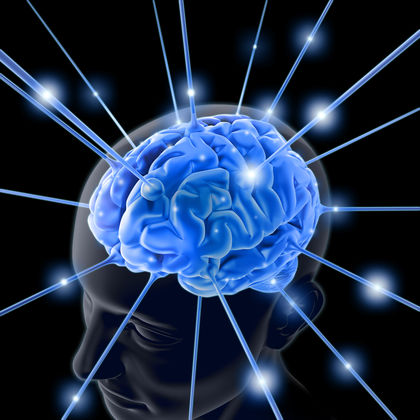
Here is a formal definition of executive functioning:
The executive functions are a set of processes that all have to do with managing oneself and one’s resources in order to achieve a goal. It is an umbrella term for the neurologically-based skills involving mental control and self-regulation.
What is Executive Function?
“Executive Function” is a term used to describe a set of mental processes that helps us connect past experience with present action. We use executive function when we perform such activities as planning, organizing, strategizing and paying attention to and remembering details.
A List of Executive Functions
- Inhibition – The ability to stop one’s own behavior at the appropriate time, including stopping actions and thoughts. The flip side of inhibition is impulsivity; if you have weak ability to stop yourself from acting on your impulses, then you are “impulsive.”
- Shift – The ability to move freely from one situation to another and to think flexibly in order to respond appropriately to the situation.
- Emotional Control – The ability to modulate emotional responses by bringing rational thought to bear on feelings.
- Initiation – The ability to begin a task or activity and to independently generate ideas, responses, or problem-solving strategies
- Working memory – The capacity to hold information in mind for the purpose of completing a task.
- Planning/Organization – The ability to manage current and future- oriented task demands.
- Organization of Materials – The ability to impose order on work, play, and storage spaces.
- Self-Monitoring – The ability to monitor one’s own performance and to measure it against some standard of what is needed or expected.
The executive functions are a diverse, but related and overlapping, set of skills. In order to understand a person, it is important to look at which executive skills are problematic for them and to what degree.
How does Executive Function affect learning?
People with executive function problems have difficulty with planning, organizing and managing time and space. They also show weakness with “working memory” (or “seeing in your mind’s eye”), which is an important tool in guiding one’s actions.
As with other manifestations of LD, disorders in executive function can run in families. Problems can be seen at any age but tend to be increasingly apparent as children move through the early elementary grades; the demands of completing schoolwork independently can often trigger signs that there are difficulties in this area.
In school, at home or in the workplace, we’re called on all day, every day, to self-regulate behavior. Normally, features of executive function are seen in our ability to:
- make plans
- keep track of time
- keep track of more than one thing at once
- meaningfully include past knowledge in discussions
- engage in group dynamics
- evaluate ideas
- reflect on our work
- change our minds and make mid-course and corrections while thinking, reading and writing
- finish work on time
- ask for help
- wait to speak until we’re called on
- seek more information when we need it.
These skills allow us to finish our work on time, ask for help when needed, wait to speak until we’re called on and seek more information.
Problems with executive function may be manifested when a person:
- has difficulty planning a project
- has trouble comprehending how much time a project will take to complete
- struggles to tell a story (verbally or in writing); has trouble communicating details in an organized, sequential manner
- has difficulty with the mental strategies involved in memorization and retrieving information from memory
- has trouble initiating activities or tasks, or generating ideas independently
- has difficulty retaining information while doing something with it; e.g., remembering a phone number while dialing.
What are some strategies to help?
There are many effective strategies one can use in when faced with the challenge of problems with executive function. Here are some methods to try:
General strategies
- Take step-by-step approaches to work; rely on visual organizational aids.
- Use tools like time organizers, computers or watches with alarms.
- Prepare visual schedules and review them several times a day.
- Ask for written directions with oral instructions whenever possible.
- Plan and structure transition times and shifts in activities.
Managing time
- Create checklists and “to do” lists, estimating how long tasks will take.
- Break long assignments into chunks and assign time frames for completing each chunk.
- Use visual calendars to keep track of long term assignments, due dates, chores, and activities.
- Use management software such as the Franklin Day Planner, Palm Pilot, or Lotus Organizer.
- Be sure to write the due date on top of each assignment.
Managing space and materials
- Organize work space.
- Minimize clutter.
- Consider having separate work areas with complete sets of supplies for different activities.
- Schedule a weekly time to clean and organize the work space.
Managing work
- Make a checklist for getting through assignments. For example, a student’s checklist could include such items as: get out pencil and paper; put name on paper; put due date on paper; read directions; etc.
- Meet with a teacher or supervisor on a regular basis to review work; troubleshoot problems.
The brain continues to mature and develop connections well into adulthood, and a person’s executive function abilities are shaped by both physical changes in the brain and by life experiences, in the classroom and in the world at large. Early attention to developing efficient skills in this area can be very helpful, and as a rule, direct instruction, frequent reassurance and explicit feedback are strongly recommended.


